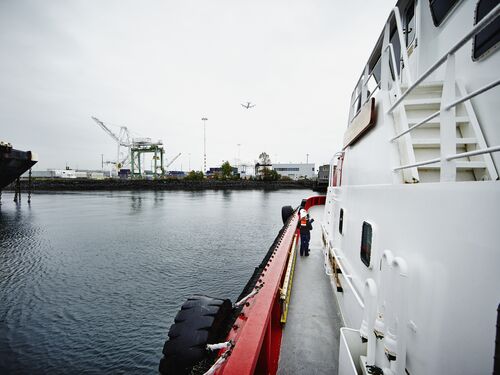Gulf Research Program Announces Inaugural Early-Career Research Fellows for New Human Health and Community Resilience Track
News Release
By Stephanie Miceli
Last update May 27, 2021
The Gulf States have faced decades of challenges that directly affect the health and well-being of people and communities: climate disasters such as hurricanes and floods, and the emotional distress that follows; a high prevalence of chronic diseases such as hypertension, diabetes, heart disease, and asthma; and environmental contamination exacerbated by the Deepwater Horizon Oil Spill and other offshore accidents. In the wake of disasters, communities of color and low-income families have been overwhelmingly affected.
Fellows’ projects will explicitly focus on the root causes of individual and community health and well-being, known as social determinants of health (SDOH). These include food security, drinking water quality, transportation access, affordability and quality of housing, job opportunities, and access to green spaces. Fellows will apply a health equity lens and consider SDOH in emergency preparedness, response, and recovery activities. They will also work closely with communities to develop locally relevant resilience building strategies.
Since the awards are not attached to a specific project, the fellows are able to explore bold research ideas that they might not otherwise be able to pursue. All fellows are investigators, faculty members, clinician scientists, or scientific team leads at colleges, universities, and research institutions. Each of them will receive a $76,000 financial award, mentoring support, and a built-in community of current and past cohorts.
The incoming class of fellows is actively working to solve a diverse array of challenges, including:
- Understanding how older adults can age comfortably in high-risk coastal communities, and adapt to and prepare for coastal erosion, frequent flooding, and heatwaves;
- Identifying transportation-related barriers to health in Texas;
- Using crowdsourcing and citizen science campaigns to address drinking water and infrastructure injustice in Louisiana; and
- Examining the role of urban green infrastructure in mitigating health disparities, especially for people in underserved neighborhoods.
The seven fellowship recipients are:
Micah Hahn
Assistant Professor, Environmental Health, Institute for Circumpolar Health Studies
University of Alaska-Anchorage
Adrienne Katner
Assistant Professor, Environmental and Occupational Health, School of Public Health
Louisiana State University
Dongying Li
Assistant Professor, Department of Landscape Architecture and Urban Planning
Texas A&M University
Alexis Merdjanoff
Clinical Assistant Professor, Department of Social and Behavioral Sciences, School of Global Public Health
New York University
Kelsey Pieper
Assistant Professor, Department of Civil and Environmental Engineering
Northeastern University
Eric Sarmiento
Assistant Professor, Department of Geography
Texas State University
Janille Smith-Colin
Assistant Professor, Department of Civil and Environmental Engineering
Southern Methodist University
To learn more about the Gulf Research Program’s Early-Career Research Fellowships, visit nationalacademies.org/our-work/early-career-research-fellowship.
The National Academies’ Gulf Research Program is an independent, science-based program founded in 2013 as part of legal settlements with the companies involved in the 2010 Deepwater Horizon disaster. It seeks to enhance offshore energy system safety and protect human health and the environment by catalyzing advances in science, practice, and capacity to generate long-term benefits for the Gulf of Mexico region and the nation. The program has $500 million for use over 30 years to fund grants, fellowships, and other activities in the areas of research and development, education and training, and monitoring and synthesis. Visit nationalacademies.org/gulf/gulf-research-program to learn more.
The National Academies of Sciences, Engineering, and Medicine are private, nonprofit institutions that provide independent, objective analysis and advice to the nation to solve complex problems and inform public policy decisions related to science, technology, and medicine. The National Academies operate under an 1863 congressional charter to the National Academy of Sciences, signed by President Lincoln. For more information, visit nationalacademies.org/about.
Contact:
Stephanie Miceli, Media Relations Officer
Office of News and Public Information
202-334-2138; e-mail news@nas.edu
More like this
Discover
Events
Right Now & Next Up
Stay in the loop with can’t-miss sessions, live events, and activities happening over the next two days.
NAS Building Guided Tours Available!
Participate in a one-hour guided tour of the historic National Academy of Sciences building, highlighting its distinctive architecture, renowned artwork, and the intersection of art, science, and culture.


